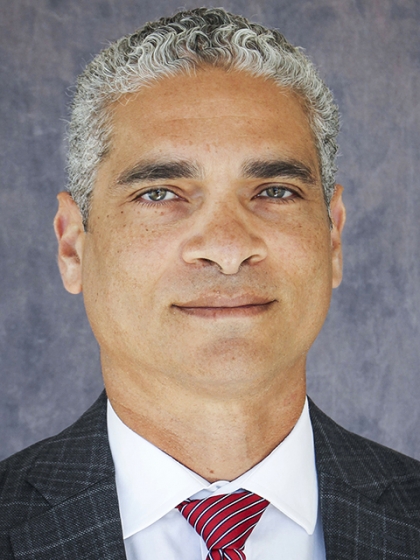Dr. Daniel H. Hunt, New York-Presbyterian Lower Manhattan
1. What are the most recent preventative measures for colon cancer?
The best prevention for colon cancer remains timely screening which has proven to lower the incidence of colorectal cancer and identify early and very treatable disease. In addition, modifiable risk factors like excessive alcohol consumption, obesity, smoking, and inactivity are changes we can make over our lifetime to help reduce the risk of developing cancer.
2. Can you share what type of screening you would recommend for patients, including your thoughts on home kits?
Colonoscopy is still the gold standard for colorectal cancer screening but there are other options including stool tests, sigmoidoscopy, and virtual colonoscopy. One should have a discussion with their physician to discuss the risks and benefits of the various options for screening and which specific test is best suited for them.
3. What age should one start screening, and should everyone schedule a colonoscopy at some point?
Screening for the average risk individual must start at age 45. The age of screening can be earlier than 45 based on an individual’s personal medical history or family history which may put them in a higher risk category.
4. Who is a candidate for colon cancer, Crohn’s, IBS, family history patients, specific gene?
An individual’s risk of colon cancer is higher if there is a personal history of colorectal cancer or precancerous polyps. Additionally, if there is a family history of colorectal cancer especially if multiple family members are affected and are diagnosed at a young age < 50. Crohn’s disease and ulcerative colitis increase one’s risk of colorectal cancer and this risk increases based on the duration of the disease. There is no link between IBS and colorectal cancer. Inherited genetic mutations responsible for colorectal cancer development comprise less than 5% of all colorectal cancers. Genetic testing of the cancer is routinely performed now but should also be performed if there is a strong family history or diagnosis of cancer at a young age.
5. When one hears the word cancer, immediately they are terrified, is colon cancer a death sentence?
Colorectal cancer is very treatable and curable when diagnosed at an early stage. There are however many options for treatment of advanced stages when the cancer has metastasized.
6. You specialize in minimally invasive and robotic surgery, can you walk our readers through what this means?
Minimally invasive surgery including robotic surgery provides patient with surgical treatment of colorectal tumors that result in less pain, smaller incisions, fewer incision related complications, and faster return to normal activities.
Daniel H. Hunt, M.D., FACS, FASCRS
o Dr. Hunt is a board-certified colon and rectal surgeon. He is an Assistant Professor of Surgery at Weill Cornell Medical College and an Assistant Attending Surgeon at NewYork-Presbyterian/Weill Cornell Medical Center. He is the Site Chief of Colon and Rectal Surgery at New York-Presbyterian Lower Manhattan Hospital. Dr. Hunt specializes in minimally invasive surgery for benign and malignant colorectal diseases. His expertise also includes surgical management of Crohn’s disease, ulcerative colitis, diverticulitis, hemorrhoids, anal fistulae, and fissures. He has a particular interest in sphincter preservation for low rectal cancers. These advanced procedures and treatment plans, combined with new technologies offer patients improved safety, comfort and maintenance of normal bowel function.

